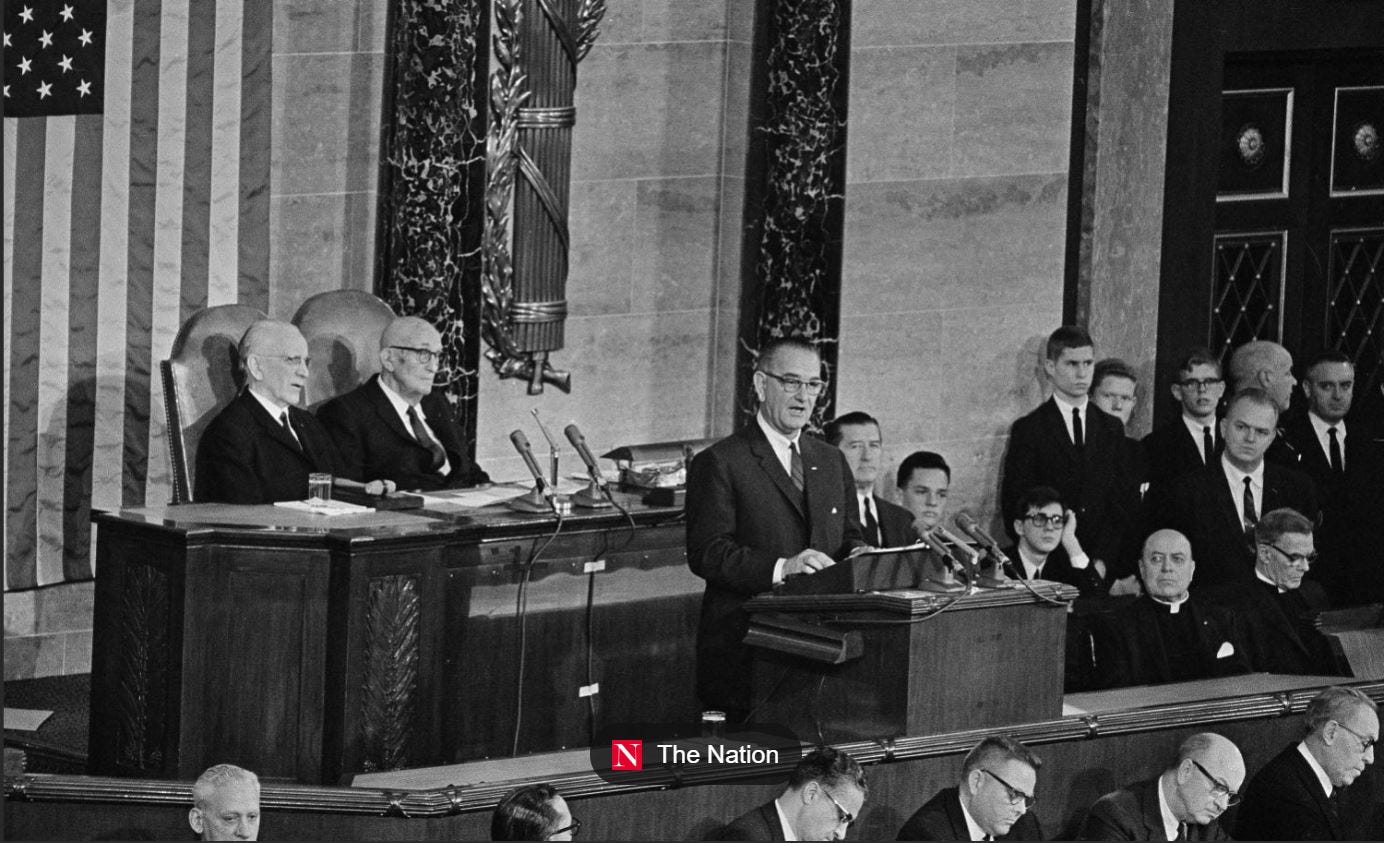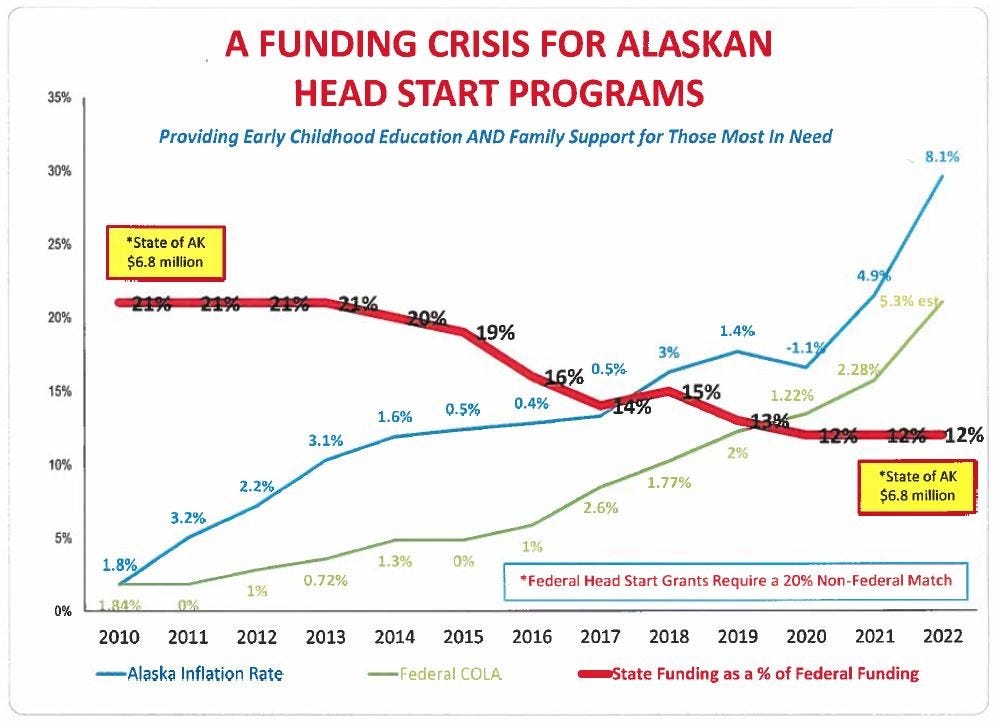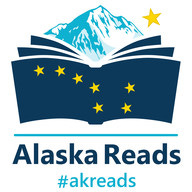Veto of Head Start funding takes critical resources away from children and families
Also, the Department of Education and Early Development is currently accepting public comments on a part of the Alaska Reads Act implementation.
Before signing the state budget on June 18, Governor Dunleavy made several line-item vetoes that I know will harm children and families across the state. I've been very vocal in my opposition to the Governor's veto of $87 million in funding for Alaska's struggling public school system; however, the Governor also cut money for kids not yet in public school. By vetoing critical state match money to local early learning nonprofits that operate the federal Head Start program across the state, Anchorage and many other communities will continue to struggle to ensure that low and limited income families have access to an early education program that promotes child development, school readiness, and supports young families with children up to age five.
Head Start has its origins in “The War on Poverty” announced during the 1964 State of the Union Speech by President Lyndon B. Johnson. The program was further expanded under the Carter administration to include bilingual and bicultural programs. Head Start has a long history of success in Alaska, which is why most programs have long wait lists. I myself am a Head Start graduate.

Every year the federal government gives grants to the 17 local Head Start programs with a requirement that they come up with 20 percent in matching funds. As recently as 2014, the State of Alaska covered the entirety of the 20 percent match; however, in recent years, the State’s contribution has been greatly reduced. During the just-completed fiscal year, the State of Alaska only contributed 11.5 percent of the money needed to reach the 20 percent threshold. This means the State of Alaska only gave the Head Start program $6.85 million. Juxtapose that with Alaska's Head Start programs receiving $59 million in federal funding in FY 2023. Less than $7 million is a far cry from the needed 20 percent local match needed.
Head Start does so much more than simply provide affordable childcare to low- and limited-income families. Through its evidence-based engagement strategies, Head Start gives families with young children the literal head start they need. The program’s health screenings, family well-being support, and social welfare services disrupt cycles of homelessness and economic inequity while improving lifelong outcomes for all their participants. It makes no sense to me to jeopardize the financial stability of this 80 percent federally subsidized program. Our early learning programs should be busy helping families, not raising funds to keep their doors open.
Throughout this year’s budget process, I and many other advocates for children worked to increase the state's contribution to Head Start programs. In the end, we were able to increase the state's contribution by $5 million. Unfortunately, the Governor vetoed $3.5 million of that funding. That leaves local Head Start programs in the unenviable position of trying to raise money locally to unlock millions in federal funding. Governor Dunleavy’s veto of the money for Head Start takes resources away from children and, frankly, right now our kids need more support not less.

Submit public comments on a part of the Alaska Reads Act implementation
On June 14, the Department of Education and Early Development opened a public comment period for proposed regulations to govern the virtual education consortium authorized by the Alaska Reads Act, which Governor Dunleavy signed into law on July 15, 2022. The Act calls for the virtual education consortium to be operational by July 1, 2024.
DEED is accepting written comments on the proposed regulations until 4:30 pm on Thursday, July 13. Email comments to deed.commissioner@alaska.gov. You can also submit comments online at https://education.alaska.gov/regs. Comments will also be accepted during a State Board of Education meeting on July 26. The public comment period for that meeting will be held from 9:15 a.m. to 10:15 a.m. The meeting will be held using the Zoom platform. You can also participate by calling 1-253-215-8782 and selecting *9 on your phone’s keypad.
As staff to Sen. Tom Begich, I worked on the many iterations of the Alaska Reads Act and as your State Senator, it is my responsibility and privilege to ensure the Act is successfully implemented.
As we saw with the pandemic, we must ensure that when online schooling is deployed, Alaskan students have access to locally designed, culturally responsive digital content that meets our state’s education standards. For a hot minute, the Department of Education and Early Development attempted to import an out-of-state online curriculum platform, which by no means met the needs of our state and our students. Establishing the virtual education consortium in law was meant to prevent a repeat of the past and guarantee that Alaskan students are taught by Alaskan educators using Alaska-grown curricula. The vision behind the consortium model was to give students across Alaska access to hundreds of our great teachers and reading coaches by using digital tools as well as provide access to locally designed professional development opportunities. The proposed regulations largely encompass that vision.
I want to stress that at no point during the legislative process was the intent to circumvent the traditional classroom environment. Rather the goal of the virtual education consortium was to offer high-quality locally designed and culturally responsive virtual education courses to students across Alaska through an online database. I believe the proposed regulations align with the letter of the law but more importantly, they align with the spirit of the law, in that the proposed regulations will allow school districts to use the Alaska Distance Learning Consortium as a tool for student instruction rather than a way to circumvent the traditional classroom environment, as some had feared.
While the proposed regulations are well crafted, I feel there is an area where greater clarity is warranted. Subsection E of House Bill 114 allows a school district that provides a course included in the database to charge a fee to the school district that uses the course for instruction. A review of the proposed regulations shows only that the Department of Education and Early Development may establish a fee for school district participation in the Consortium if it is recommended by the Consortium's governing board. The level of specificity regarding compensation for content producers outlined in the bill that passed the Alaska State Legislature is missing from the proposed regulations. As someone who was in the room when these provisions were developed and debated, I believe the legislative intent was to allow school districts that produce online courses and content to be fairly compensated for that work while still allowing other school districts to benefit from the use of those courses and content. Without a properly defined fee structure, the content produced by school districts operating in good faith could be used by other school districts to circumvent the traditional classroom environment, which was not the legislative intent when the Alaska Reads Act was developed, passed, and signed into law.
During the development of the Alaska Reads Act, it was noted many times that the proposed virtual education consortium would benefit by working closely with the University of Alaska. While that relationship was not specifically detailed in the bill that was signed into law, I believe the Alaska Department of Education and Early Development would benefit by working with the University of Alaska to augment the online resources that will be available through the new Alaska Distance Learning Consortium.
You can read the proposed regulations for the new Alaska Distance Learning Consortium by clicking this link. https://education.alaska.gov/regs
Your input is important so please consider submitting written public comments before July 13.





